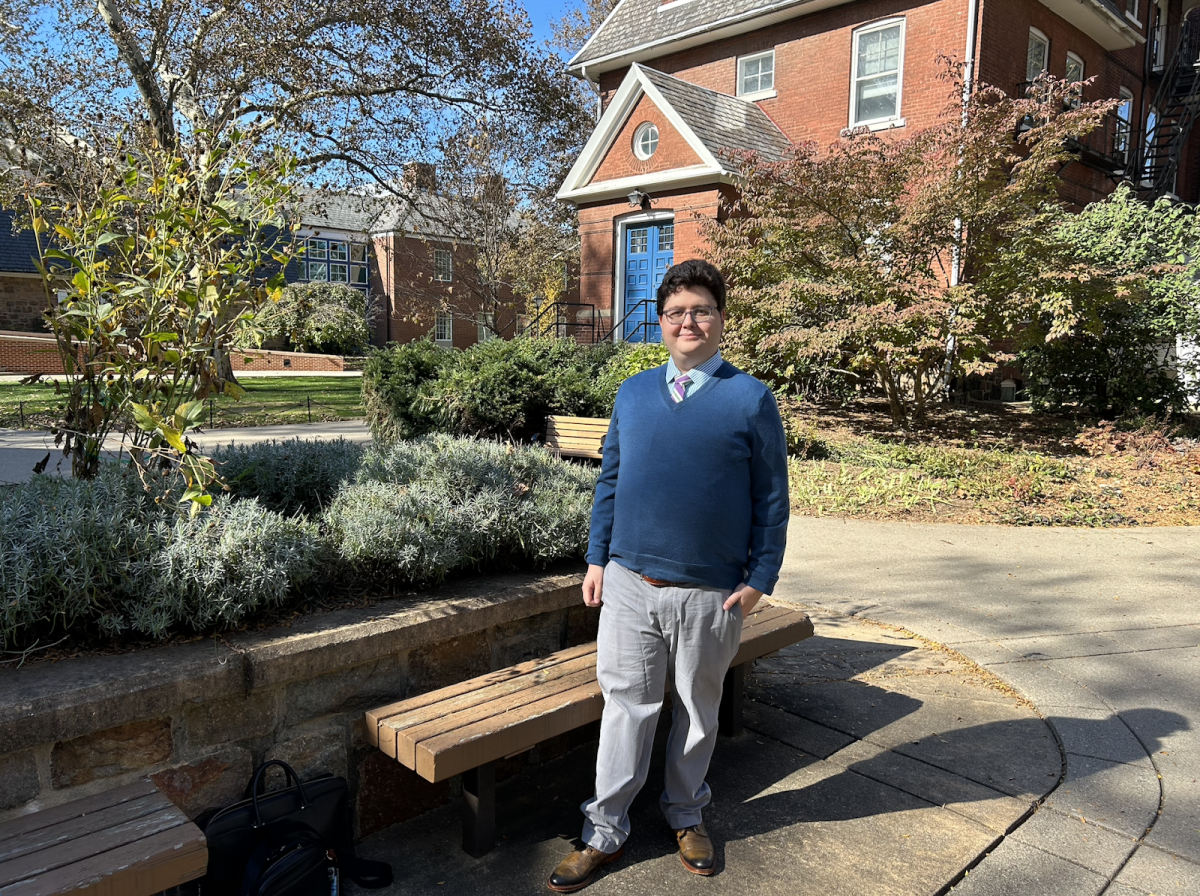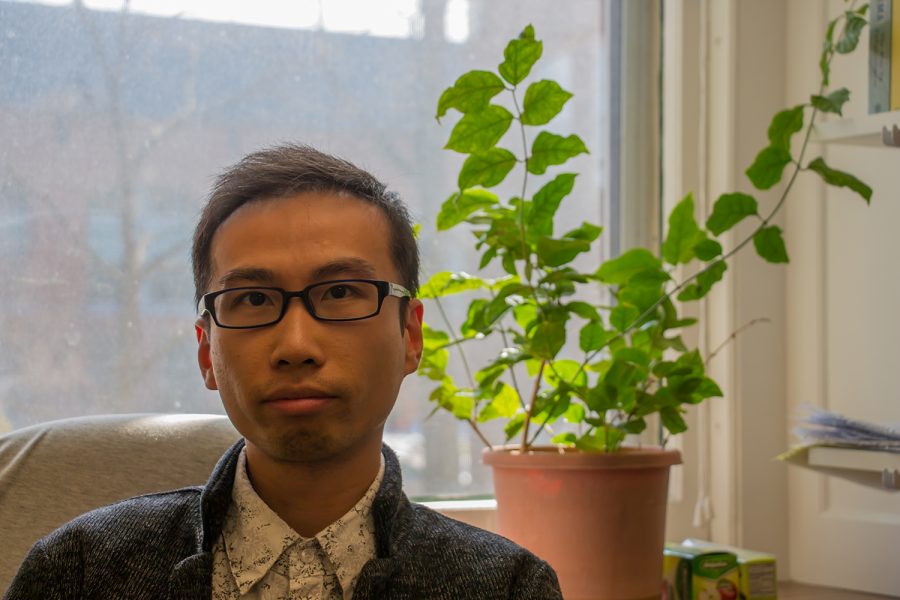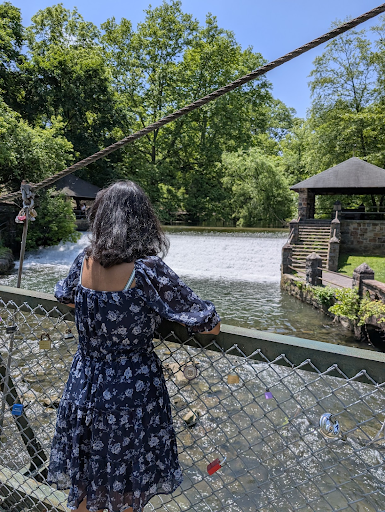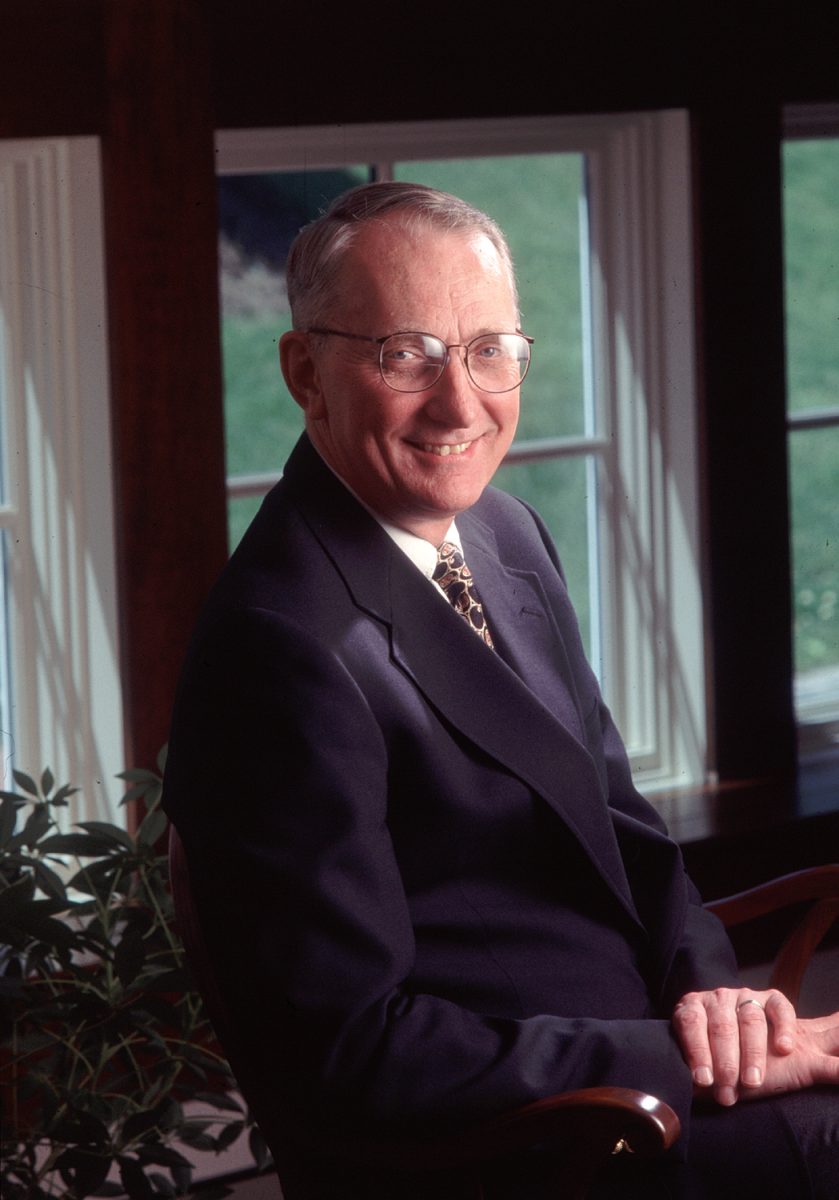Professor Christopher Shosted graduated from Moravian College in 2020 with a bachelor’s degree in English, concentrating on writing arts. He received his MA in English from Lehigh University and is currently pursuing a Ph.D. there, focusing on rhetorical theory and writing assessment.
What inspired you to go into your field of study?
I got into rhetoric after working with Dr. Fodrey and Professor Mikovits (who has since moved to other projects) here at Moravian. I took Dr. Fodrey’s Rhetorics of Everyday Life class my first semester after transferring here, and it was an eye-opening experience. I hadn’t really considered the ways communication is influenced by complex social situations and culture. Once I had the opportunity to produce my own research through SOAR and the Honors Program here, I knew I wanted to continue to study rhetoric.
What research are you currently working on?
Currently, I’m a graduate student at Lehigh University working on my PhD, so I haven’t had a ton of time to pursue my own research. However, when I do get the chance to direct my own scholarship, I tend to focus on the ways student writing is graded and assessed in college. Grading can have massive effects on our students’ financial stability both during and after college, so it’s important that we interrogate the assumptions we may be making when we determine something to be “good” writing or not.
What do you think is the most recent important development in your field of study?
ChatGPT has become a major sticking point when it comes to writing education, with some people thinking it will either replace human writing or that it will result in students cheating en masse. I’m a little skeptical as to whether it will even have an impact over the long term or if it even has value for students at all. Regardless, there’s been no shortage of responses to it within the field of writing studies.
What job would you have if you couldn’t be a professor, regardless of salary and job outcome? Why?
Personally, I think I’d work as a photographer. My dad was a photographer, and I learned a lot from him growing up. I’ve always loved the technical side of photography, but the opportunity to pursue it as a career didn’t really align for me.
What do you know now that you wished you knew when you were in college?
I wish I knew to take things easier when I was a student. Lately, I’ve been taking more time for self-care with things like exercise and meditation, and that’s helped a lot in graduate school. But I look back and realize I was seriously over-stressed about things like grades when I was an undergraduate.
What is your biggest student pet peeve?
Using phones in class can be bothersome sometimes, but ultimately, I don’t have that much that bothers me when it comes to students.
What should students expect from your classes? What is the secret to succeeding in your classes?
I teach classes focused on writing, so there are a lot of exercises and drafting that go into all of my courses. But success really boils down to having open channels of communication about what your needs are as a student. I don’t like to view myself as an authority on writing but as another collaborator for students to develop their own ways of writing that are meaningful to them.
What was the last streaming show that you binge-watched or the last good book that you read?
I recently watched the live-action One Piece adaptation on Netflix. I was pleasantly surprised by it, but I’m now feeling old from seeing something I watched as a kid being reproduced like that.
What is something interesting about you that most people don’t know?
I didn’t graduate from high school and instead earned a GED after I turned 18. I think it’s important to recognize that people have different educational backgrounds, and things like GEDs and attending community college don’t necessarily signal that a student was or is inferior to their peers.
What video game had the biggest impact on you as a person? What about it resonated with you so much?
For me, that game is the original Paper Mario on the Nintendo 64. I remember playing it with my dad when I was four or five and having him help me read the dialogue. It was the first game I had played that involved a story and was one of the first ways I learned to read. I don’t know if I would have enjoyed reading and pursued a career like this if it weren’t for that game and the others I played at that age.








